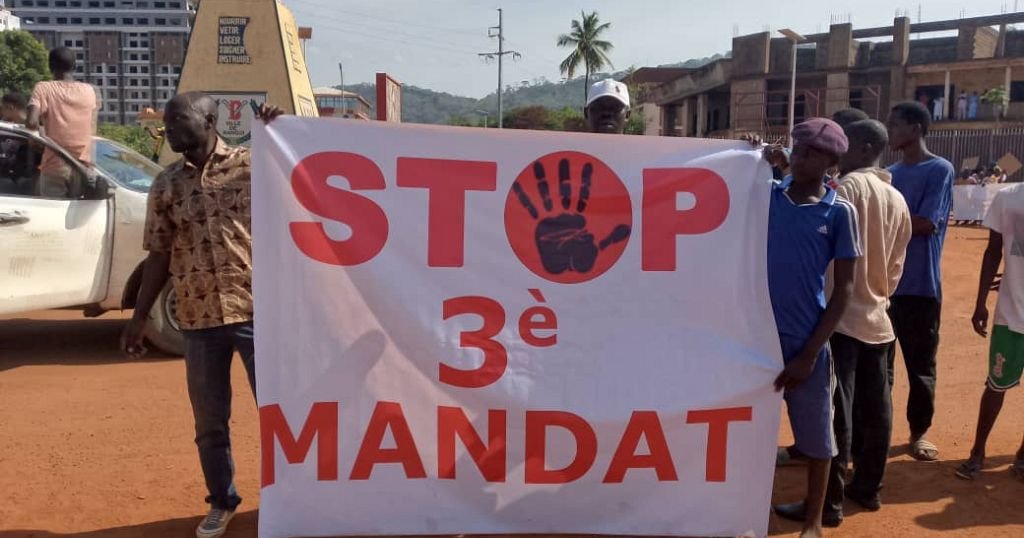Africa
Central African opposition leads mass protest against Touadéra’s third-term bid

Thousands of protesters took to the streets of Bangui this week, rallying behind opposition lawmakers to firmly oppose President Faustin-Archange Touadéra’s rumored bid for a third term in office. With tightly packed ranks, holding hands, and marching in sync to the Central African Republic’s national anthem, nearly 5,000 demonstrators made their voices heard.
Waving banners emblazoned with slogans such as “Stop the Third Term,” the crowd moved from Jackson Bridge to the Boganda Monument, marking one of the largest opposition-led demonstrations in recent years. The strong turnout, especially among young people, was hailed by opposition leaders as a clear signal of growing public discontent.
Martin Ziguélé, President of the MLPC and a leading figure within the opposition bloc BRDC, praised the youth-led movement.
“As he nears the end of his second term, he manipulates public funds to claim that the people want a third term,” said Ziguélé. “But today is a victory for the Central African people. Ninety percent of those who marched this morning were young men and women. Adults made up less than ten percent. This shows the youth are aware of their future and refuse to be intimidated by a machine of pressure made up of Russians, Wagner, and mercenaries. The Central African youth have said no.”
The protest also served as a platform to highlight broader governance failures. Speakers pointed to severe challenges in basic public services, including water, health, and education. Many voiced frustration over the worsening quality of life under Touadéra’s administration.
Samson Ngaïbona, Secretary-General of the Citizens’ Patriotic Union for Development (PCUD), underlined the country’s deteriorating education system.
“Even in Bangui, the issue of ‘parent-teachers’ persists—it’s a crisis,” he said. “And yet, this country is led by professors and educators. They should have prioritized fixing the education system, but instead, it’s collapsing. Given the dire conditions Central Africans face, we in the BRDC have mobilized to tell President Touadéra: no third term.”
Protesters also condemned the involvement of foreign military actors, notably the Russian Wagner Group, accusing the government of using foreign mercenaries to suppress dissent.
The Republican Bloc for the Defense of the Constitution (BRDC) has vowed to keep up the pressure, promising more protests in the coming weeks and months. As President Touadéra’s second term approaches its end, the opposition warns that attempts to extend his stay in power could spark even broader unrest in a country already facing deep political and humanitarian challenges.
